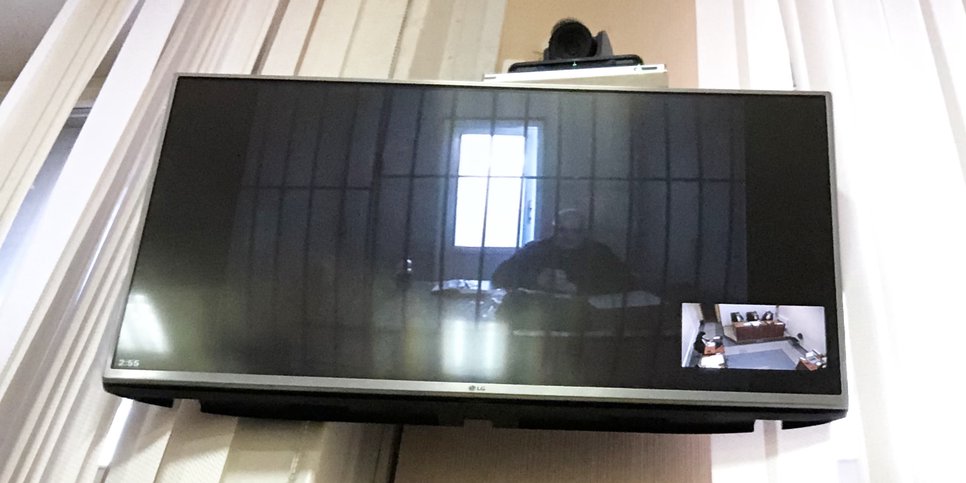In the photo: Yuriy Savelyev on the monitor from the pre-trial detention center at the appeal
In the photo: Yuriy Savelyev on the monitor from the pre-trial detention center at the appeal
A Secondary Appeal in Novosibirsk Upheld an Imprisonment Term for 68-Year-Old Yuriy Saveliyev
Novosibirsk RegionOn February 7, 2022 Novosibirsk Regional Court upheld the sentence of Leninsky District Court of Novosibirsk against Yuriy Saveliyev — 6 years in a general regime colony and 1 year of restricted freedom for believing in God.
As an additional punishment, the court deprived the believer of the right to engage in activities related to administration and participation in public and religious organizations for a period of three years.
Saveliyev called the charges against him trumped up and called himself a victim. He stated: "I lost my health, I lost my property, my reputation suffered, and now I bear the shameful mark of a 'criminal". He can appeal the verdict in cassation and international structures.
An appellate court in a different composition reconsidered the verdict to the believer after the Eighth Court of Cassation of General jurisdiction returned the case to the appellate stage on November 24, 2021.
After his arrest, Yuriy Saveliyev has been behind bars for more than three years. In the colony, where the believer was sent after his conviction, there were attempts to force him to undergo treatment without grounds — in the summer of 2021 Yuriy was sent to Barnaul to a medical correctional facility specializing in the treatment of prisoners with alcoholism and drug addiction, although he does not suffer from either of these diseases. Saveliyev was repeatedly forced to sign a consent to medical procedures. In Correctional Colony No. 1 in the Altai Territory, photos of Yuriy with the caption "prone to extremism" were hung above his bed. The elderly believer should be released in August 2023.
The criminal prosecution of Russian Jehovah's Witnesses was condemned by the Council of Europe, the OSCE, the European Union and many other Russian and international organizations. The new clarifications of the Plenum of the Supreme Court of Russia dated June 28, 2011 state that communal worship in itself does not constitute a crime under Article 282.2 of the Criminal Code of the Russian Federation, which the security forces use as justification for the persecution of Jehovah's Witnesses.

